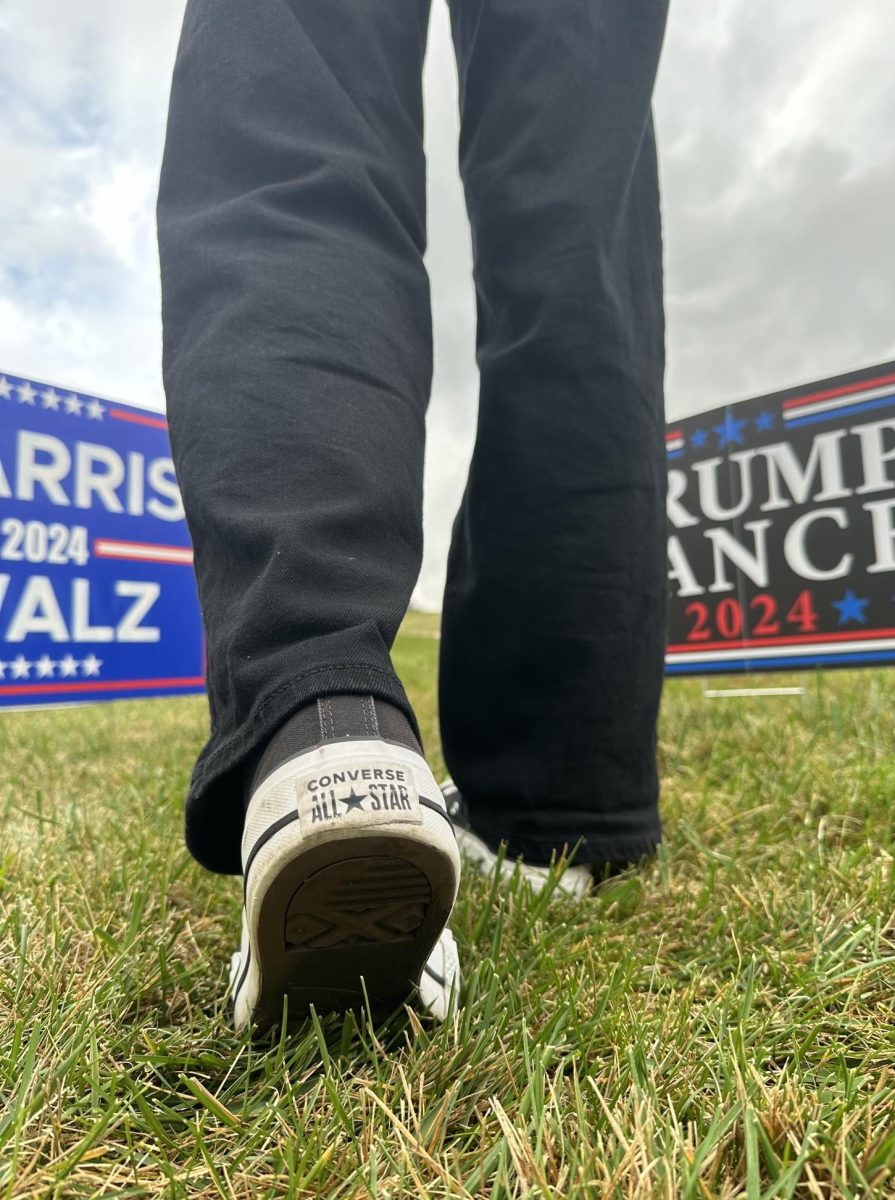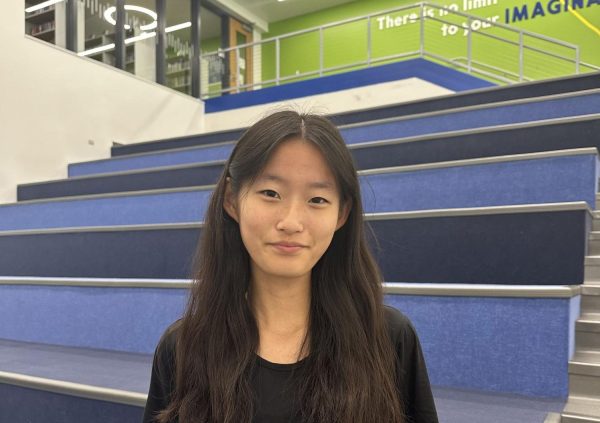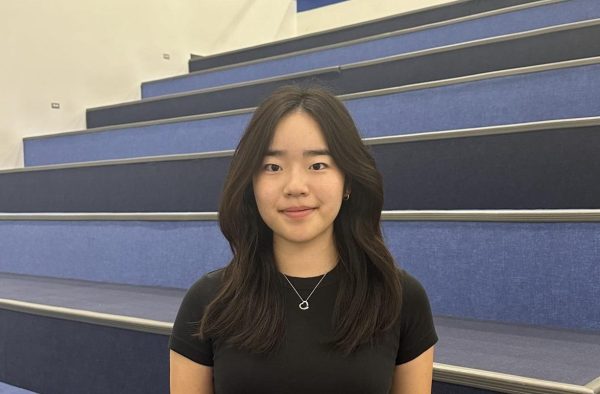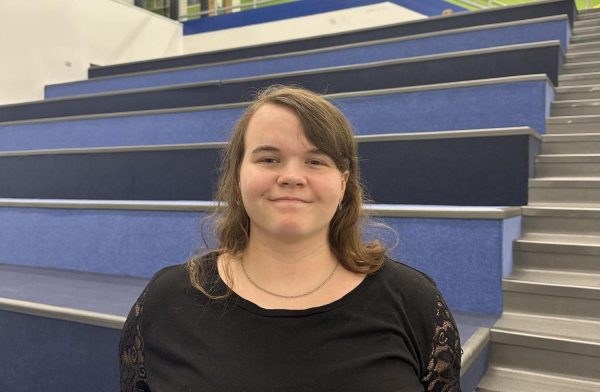INTRODUCTION
“No taxation without representation,” our Founding Fathers preached. Since the beginnings of the United States of America, our history has been heavily characterized by a search and yearning for democracy, freedom, and rights: the Civil Rights Movement, the Women’s Suffrage Movement, and many other civil rights movements were rooted in these beliefs. Especially as different political parties championed separate, even opposing, ideas, the concept of voting and our ability to do so has continued to grow increasingly vital in expressing what we believed in.
So why is voting so important? In light of the past three hundred years of presidencies, influential presidents have made significant impacts on the direction of American affairs. Now, recent events have shown the full force of what making a stand in civic life can mean: the handling of foreign policy, regulating undocumented immigration, controlling gun violence, mitigating the effects of climate change, and so forth. Voting, according to The Leadership Conference on Civil and Human Rights, is America’s voice in the scope of civic life, and is what it means to be an American.
Even so, education, on both the candidates and how to vote, continues to play an important role in influencing how citizens exercise their rights to vote, including students.
Now, with the 2024 presidential election forthcoming on November 5, the Spotlight staff has found this article to be more important than ever to explore the facets of this constitutional right. In this issue, Spotlight dives into the necessity of election participation at an early age and the role of education in voting decisions.
THE WEIGHT OF THE BALLOT
Despite the effort that early Americans put into giving citizen’s the right to vote, only 66% of the voting-eligible population participated in the 2020 presidential election, according to Pew Research. Nevertheless, voting remains an important duty for eligible American citizens in various ways.
For seniors, this year will be a special one as many of them are now eligible to vote and get to experience the election season while still being in high school. One student, Matteo Gonzalez, senior and registered voter for the 2024 election, acknowledges the far-reaching impacts of voting.
“[By voting], you get a say in your government just by who you elect as your official, whether that’s your president, senators, vice president, and so on. I think it’s very important for you to understand your values, and how you want society to look. By electing certain government officials, you can see [your values represented] throughout the government,” Gonzalez said.
Voter’s opinions on various candidates can end up influencing policies on issues such as environment, healthcare, education, and much more. Similarly, Mckenzee Johnson, senior, although unable to vote at this time, said that she is “looking forward to voting in Senate and House elections” as they are good ways to get “your voice heard [and] signal to a representative who may currently be [elected] that you don’t support their policies if you vote against them.”
These same policies are also always changing as the world evolves and new matters continue to arise. As a result, Terry Geoghegan, social studies teacher, says that the current events of an election season makes participating in the democratic process all the more significant.
“What dawned on me […], maybe two elections ago, [is that] when it comes to the presidential election, every election tends to be the most important election in our lifetime and I remember saying that for each one of them,” Geoghegan said. “Yeah, this one is important based on how each one views foreign policy, [for example], Ukraine, the Middle East and their view of the right of women to make choices. An argument could be made that this is one of the most important elections of your or my lifetime.”
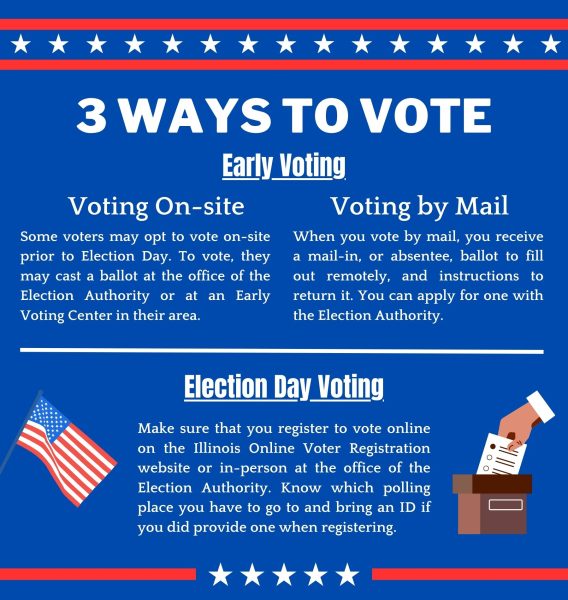
While voting is necessary for individuals to express their current ideas and visions for the nation both domestically and abroad, participating in elections is also important, Kim Ferraro, social studies teacher, says, in order for the demographic to be a “diverse and true reflection of what the American public wants.” However, according to USAFacts, only around 48% of eligible voters aged 18-24 years voted in the 2020 election, whereas all other age groups had turnouts greater than 50%.
“The voter turnout is always the lowest with the younger population. [What] I always say to [my seniors] is the impact of voting will affect you,” Ferraro said. “When you [have] individuals that are retired and in the older generations, they won’t reap or be hurt by much of the impact of those votes, [but] the youth vote will. Not as many young adults go vote because I don’t think they see the close impact that voting can have.”
This worry stems from the discrepancy between the “established” values of different generations. The younger generation taking the initiative to vote can be all the more important, as Omantas Bubenas, junior, says that many Congressmen are part of the older generation.
“They care a lot more about the [interests of] boomers and Gen X. Sometimes our interests as younger people don’t align with the interests of the older generation [that] are already established, who already have savings built up, who aren’t as affected by downturn in the economy, whereas young people with no stability or foundation [might be],” Bubenas said.
In the same way, voting reaps the rewards of America’s victory in the battle for popular sovereignty, which a lot of countries around the world do not have the privilege of, according to Ferraro.
“[Voting] makes me so happy, because to me, it’s democracy in action. It is participating in a free election, which, [and] a safe and free election […] is something that should be cherished and protected,” Ferraro said. “When I first voted, they’re like, ‘Is this your first time voting?’ I said yes and they all applauded. [So when you vote], you’re a part of something bigger than just you.”
Despite the various benefits of voting on both an individual and community level, there remain several factors that lead many to decide not to vote, even if they are eligible to.
“I think people choose not to vote because they’re not educated on the voting process, or are not a fan of the government in general,” Gonzalez said. “Or they just don’t like the controversy in politics and just want to avoid it all together.”
Specific circumstances also may impact whether or not people choose to vote— for example, according to Geoghegan, some people “don’t trust the system” and are worried about issues like ballot counting. It could be as simple as being busy on election day or more complex when it comes to matters such as income inequality, in which lower income individuals “might not be able to take time off” whereas higher income people can.
While these are some of the most common reasons, Johnson also notes that people often believe that “[their] vote doesn’t matter.” Though not always true, it can be the case in “super blue or super red states,” compared to swing states. Even so, this mindset towards voting can lead the nation “down the path we don’t necessarily want to go [down]” and to feelings of regret.
“Well, if everyone says ‘my vote doesn’t matter, [so] I’m not gonna vote,’ then you could lead to someone you don’t like getting elected because the people who did think their vote mattered or cared enough to go vote were the people who supported a candidate you didn’t like,” Johnson said. “Then we have a country where we don’t actually have majority rule, because a majority of people don’t care enough to pick who’s leading them.”
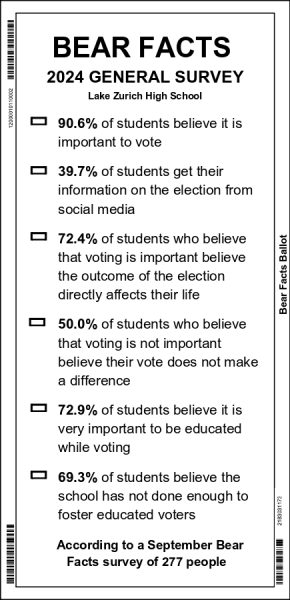
However, voting in elections is not just significant on the highest level. People often focus on the presidential election, but participating in other elections such as the midterms and local elections that historically have lower voter turnout, are just as important, says Ferraro, as they often have a more direct and “bigger impact on your day to day” life and communities.
“One example I love to reference to my students is a few years ago, the District 95 community had to vote on a referendum. It was for the funding that went to build the new May Whitney. It went to build the Hub. It went to so many school and district improvements, but was voted on by our community.”
No matter what election, at what level and when, people should vote. Not only does Geoghegan say that it is a way that “more varied interests will take shape” the more that people participate, but it is also an easy way to “give back to your country” and do one’s civic duty.
“I wish more people would vote,” Geoghegan said. “I hope that when people do vote, [they realize] that voting for a representative or a senator or president is not a sport [or] a game. It’s not, ‘my team will win or your team will lose.’ It is about how we make this country closer to the ideals that the Declaration of Independence has set out.”
CASTING AN INFORMED VOTE
Voting, in its physical requirements, is not a complicated task. However, in regards to intellectual pursuits, the process of casting an educated vote requires a significant amount of research and thought. In order to properly utilize the right to vote at an early age, young voters should prioritize thoroughly educating themselves to form their own opinions. It may seem as though such advice is only applicable to those turning 18 before November 2, 2024; the truth is that the research regarding voting and presidential candidacies should happen far beforehand, stretching as far back as the beginning of high school or even earlier.
It is seemingly obvious that education is crucial to becoming a responsible voter and voting for the proper candidate that aligns with the voter’s interests. Without sufficient knowledge, the voter may unintentionally turn in their ballot towards a candidate whose beliefs do not align with their own, and therefore, cast their ballot unknowingly.
“[There’s] clearly a lot [of importance regarding education]. Consider this as a visual. Imagine a two layer cake with icing on it. I think there might be a lot of people who could explain their views in a sense of them just taking the icing off the cake: they know one sentence of their beliefs that they’ve heard on their social media. [We will take some] ideology tests, and when you take them in class, I’ll be standing around and saying, ‘if there is a question that you do not understand, let me explain it.’ You pick your answer, but I need you to understand the question, because if you don’t, and you answer something that, if you had fully understood it, you [would] had chosen a different answer that skews the results,” Geoghegan said.
Although voter education is important across all age groups, younger voters also have less experience going through economic crises and social crises compared to older voters, meaning that education is even more crucial to lessen the gap.
“There is a difference between first time voters and people who have been voting for a long time. If you’re like 60 and you’re voting, you’ve obviously been through multiple elections. So you already know the process of an election, what each candidate does, and how they advocate for themselves. For first time voters, most of them are obviously young, like 18 years old. And I think it’s important to just understand the process first and what an election really is,” Gonzalez said.
Besides educating oneself on the political values and ideologies, it is also important to learn how to actually vote and submit a ballot. Oftentimes, learning how to vote will inspire more people to research the election process and get themselves to a voting booth.
“I think it’s important [for the school] to educate students on how to register to vote, because it gets you ready for the real world. Then it educates you about what each election is [about]. And then just kind of gets you educated on what [type of] election [it is], what an election is, and [what] people are in the election,” Gonzalez said.
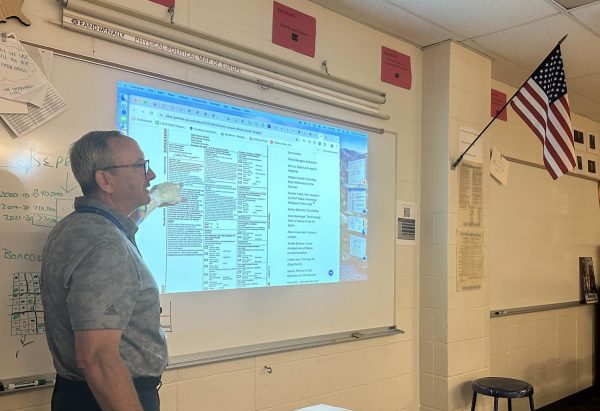
School can only teach a student so much, however; after a certain point, Johnson says, “ultimately you have to do it yourself.” Especially with the increased spread and creation of AI generated videos and misleading information, it is important to take the matters of becoming educated into one’s own hands.
“A lot of information that younger voters get [is] on social media, in my opinion. For example, on Tiktok and Instagram, they might just be scrolling on their feed, and then a political post pops up, and they read it and [get] educated that way, which is a great resource, but I think there’s a lot more to it. Just viewing a single post doesn’t really get you the whole story of a certain issue or person. I think that [a person] really needs a deeper dive into that issue or person, like online, or on a government website,” Gonzalez said.
It is not easy getting information from unbiased sources, however. Oftentimes, according to Johnson, the so-called center sources can have traces of bias in their reports, like AP News. Finding and reading sources on “both sides of the aisle,” is a better way to educate oneself.
“Individuals [now] can consume news in so many different ways, whether it is through our devices, [such as] social media and news networks. It [is] so much to try to decipher it, [and] it also kind of leads to some of those bubbles,” Ferraro said. “If you’re watching one Tiktok page, or if you just keep seeing one [source], you’re just getting one perspective. So it’s really useful, when we’re trying to study the news, to look at various different sources [and] then ultimately come to your conclusion. But we want to study an array of different points of view and an array of different materials so they get a broader perspective, to kind of try to break that bubble.”
Even so, having easier access to social media and biased media does not mean the entire student body is uneducated. Many are, in fact, more educated than the majority, according to Ferraro.
“I think that many of my students are more educated on some matters than some of the population, and I think [that’s] because we try to really prepare our students for when they leave our school,” Ferraro said. “Whether that is to afford university [or] enter a career, we want them to participate in society, engage with individuals, and discuss controversial topics. ”
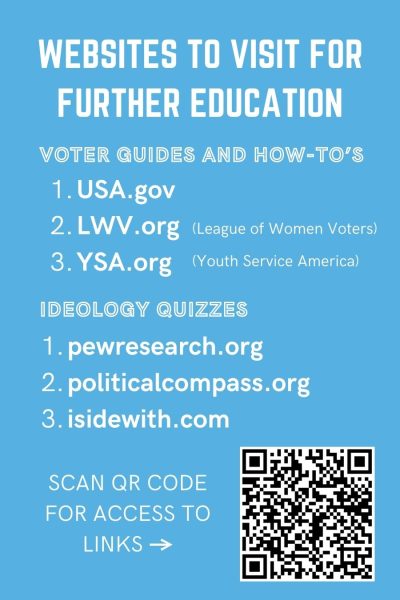
Even students ineligible to vote in this upcoming election have educated themselves by focusing on academics or other personal pursuits, like Ace Galarza, sophomore, who joined the political science club to further educate himself. He, like many others, believes in the weight of education.
“I believe [educated voting] is very important,” Galarza said. “Nowadays it’s so easy to get false information [from] even some credible news sources, it’s hard to tell fact from opinion.”
Regardless, Galarza remains optimistic about his future ability to vote, as it allows him, and the other voters, to have a voice in the government.
“I am excited to participate in voting,” Galarza said, “and have an opinion on who runs our country for [the coming] years.”

